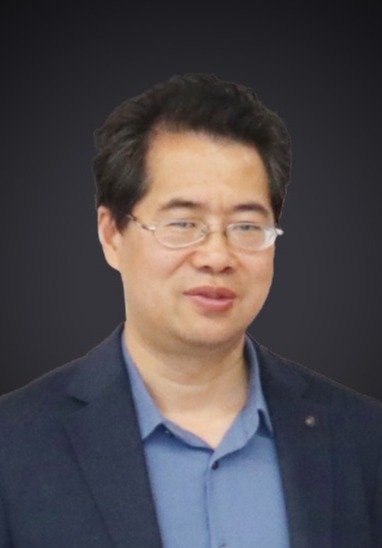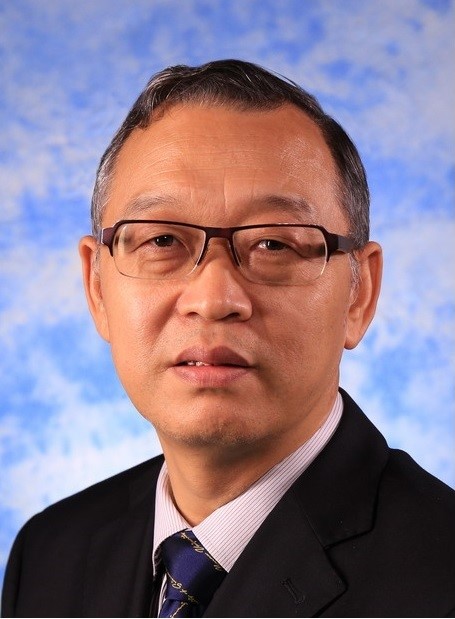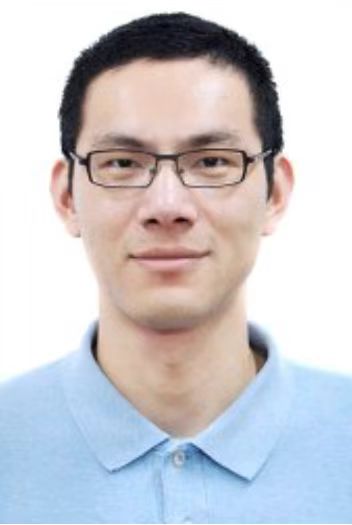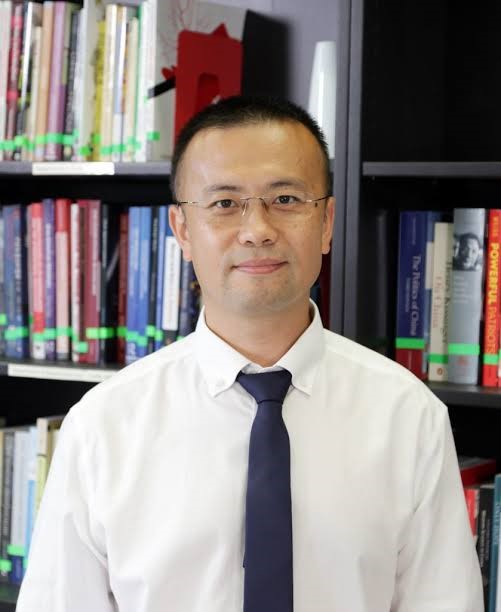Keynote Speakers
Here are some of our keynote speakers

Tianyong Hao
Title : Large-scale Clinical Trial Text Mining through Natural Language Processing
ABSTRACT:
Clinical trials generate highly relevant evidences for effective disease
treatments. The extraction of necessary information from a large-scale
clinical trial text through natural language processing for patient
characteristic aggregation remains a research problem due to the complex
of the investigator-authored free-text. This talk will introduce the recent
research on: an extensible approach for automated semantic tag mining,
clinical trial clustering by similar eligibility criteria, disease
named entity recognition, temporal expression extraction and normalization,
transgender identification for enhancing clinical trial recruitment,
and measurable quantitative information extraction and normalization.
BIO:
Dr. Tianyong Hao is a full Professor at South China Normal University.
He received Ph.D. degree at City University of Hong Kong in 2010.
He studied at York University in 2008 and Emory University in 2009.
After that, he worked at University of New South Wales in 2012 and
at Columbia University until 2014. Dr. Hao is a senior member of IEEE,
an outstanding member of CCF, and the committee member of ISO TC37,
SAC TC52 (Associate secretary), AACI (Associate secretary),
CIPS (Council member), CIPS Health Informatics section (Vice chair),
CCF YOCSEF Guangzhou (Chair, 19-20), CCF Guangzhou (Vice chair) etc.
He is also the leader of a provincial level research team on NLP for
big data. He currently is the committee director of a provincial
engineering-technology center, and the director of a big data center
under a provincial research institute. He is the lead guest editor of
several SCI journals including JMIR Medical Informatics, BMC Medical
Informatics and Decision Making, etc. He has published more than
200 SCI/EI indexed papers. He is the PI of 3 grants from NSFC and
more than 20 grants in various levels (over 10 million RMB in total).
He owns 9 best paper awards, 8 ISO/national standards (the first ISO
standard in the history of SCNU), and 20 patents.

Xiaoru Yuan
Title : Constructing intelligent interactive maps of cultural and historical information
ABSTRACT:
In the era of big data, the transformation of research paradigms is affecting
various disciplines, and visualization and visual analyses, which closely
integrate human intelligence with the powerful computing power of machines,
play an important role in it. The report will introduce several recent works
carried out by the Visualization Laboratory in close collaboration with various
humanities and social science researchers, including maps of the evolution of
prehistoric painted pottery patterns and maps of Han nationality spatiotemporal
transmission. On the one hand, these interactive maps targeting historical
information provide new tools for researchers in the field of history and
culture, supporting more efficient exploration and discovery.
On the other hand, they also provide a mean for the public to understand
specialized knowledge in the field and offer suggestions for developing new
exhibition methods.
BIO:
Xiaoru Yuan is a researcher at the School of Intelligence Science and Technology,
Peking University, Long term Associate Professor, Doctoral Supervisor, and
Executive Deputy Director of the National Engineering Laboratory for Big Data
Analysis and Applications. Xiaoru is committed to researching general basic
methods and domain application systems for visualization and visual analysis.
His achievements have been applied in fields such as simulation computing,
transportation and aviation, media communication, humanities and social sciences.
He has won the Best Paper or Nomination Award at domestic and international
visual chemistry conferences such as IEEE VIS and ChinaVis multiple times.
He served as the Chair of IEEE VIS Conference Papers in 2017/2021. He is
currently a member of the IEEE VIS, PacificVis, ChinaVis Steering Committee,
and an editorial board member for domestic and international journals such as
IEEE TVCG. He advocated and co founded the China Visualization and Visual
Analysis Conference. He is also a member of the Chinese Society of Image and
Graphics and the director of the Visualization and Visual Analysis Professional
Committee. His visual works have been selected for Beijing Design Week,
Zhejiang Art Museum Art Exhibition, as well as conference art project
exhibitions such as IEEE VIS, PacificVis, and ChinaVis.

Tian Wang
Title : Research and Applications of Collaborative Edge Intelligence
ABSTRACT:
With the explosive growth of Internet of Things (IoT) devices and the widespread adoption of
5G networks, the volume of data has surged, increasing the demand for real-time processing
and low latency. The traditional cloud computing model faces challenges when handling massive
amounts of data generated at the edge, due to transmission delays and bandwidth limitations.
To address these issues, collaborative edge intelligence has emerged as a promising paradigm
and is becoming a hot topic in research. This report aims to provide an overview of its key
concepts, task offloading strategies, resource allocation algorithms, technical challenges, and application cases.
BIO:
Tian Wang is a tenured professor at Beijing Normal University and serves as the
Engineering Research Center of Cloud-Edge Intelligent Collaboration on Big Data,
Ministry of Education. He is a PhD advisor and a recipient of the National Youth Top-notch Talent Support Program. Prof. Wang is the principal investigator for National Key Research and Development Program of China and leads the Innovation Team for Higher Education Institutions in Guangdong Province. He received his PhD from City University of Hong Kong and is recognized among the world’s top 2% of scientists. Additionally, he is part of the Leading Talent Program at Beijing Normal University.
Prof. Wang'sresearch focuses on the Internet of Things and edge intelligence. He has
published over 50 papers in CCF A conferences and IEEE/ACM Transactions journals.
His work has garnered more than 15,000 citations, with an H-index of 71, and
includes 10 ESI Highly Cited Papers (three of which are ESI Hot Papers). He holds
30 authorized patents, with one patent successfully transferred. He has led one
National Key R&D Program of China and five National Natural Science Foundation of
China. His work has been honored with several awards, including the Hunan Provincial
Natural Science Award (Second Prize), the Fujian Provincial Science and Technology
Progress Award (Second Prize), and the Fujian Provincial Natural Science Award (Third Prize).

Jianqing Li
Title : Security Circumvention Approaches against Crosstalk Attacks in Optical Networks
ABSTRACT:
As a typical security threat that is easy to generate, widely spread, and difficult
to eliminate, crosstalk attacks pose the greatest risk of potential information
leakage to security-sensitive services in optical networks. Therefore, how to
effectively avoid security threats from crosstalk attacks during the network
planning stage is particularly important. In order to effectively protect
security-sensitive services to maximize the avoidance of crosstalk attacks,
this report introduces a crosstalk attack-aware routing and spectrum allocation
technology based on routing avoidance. By analyzing the potential attack risks
of different routing and spectrum solutions, a mixed integer linear programming
model and heuristic algorithm are used to solve the problem, thereby reducing
the risk of information leakage of security-sensitive services in optical networks
and improving the security performance of the network.
BIO:
Jianqing Li is currently a Professor and an Assistant Director of School of
Computer Science and Engineering, Macau University of Science and Technology.
He received the Ph. D. degree from the Beijing University of Posts and
Telecommunications, Beijing, China, in 1999. From 2000 to 2002, he was a
Visiting Professor with the Information and Communications University, Daejeon,
South Korea. From 2002 to 2004, he was a Research Fellow with Nanyang Technological
University, Singapore. He joined the Macau University of Science and Technology,
Macau, China, in 2004. He won Third Prize in Technology Invention of 2016 and
2018 Macao Science and Technology Awards, respectively. He won Third Prize in
Natural Science of 2022 Macao Science and Technology Awards. His main research
interests include optical networks, wireless networks, fiber sensors, and the
Internet of Things.

Yuan Wu
Title : Convergence of Generative AI and Federated Learning for Efficient Edge Intelligence
ABSTRACT:
Recent advancements in generative artificial intelligence (AI) and federated
learning (FL) have opened new avenues for efficient edge intelligence.
This talk will explore the convergence of generative AI and FL within the realm of
edge computing. Generative AI has demonstrated remarkable capabilities in
synthesizing realistic data. In parallel, FL facilitates collaborative model
training across distributed edge devices while ensuring data privacy.
This talk will introduce a framework for on-demand generative AI services
tailored for edge computing. The discussion will focus on how generative AI
can be delivered to heterogeneous edge devices, accommodating varying latency
and quality requirements. Additionally, the talk will highlight the potential
benefits of integrating generative AI with FL to enhance resource efficiency in
edge intelligence. By leveraging generative models to create synthetic training
data, we can augment limited local datasets on edge devices. This balance between
local and synthetic data allows FL systems to achieve fast and accurate convergence.
BIO:
Yuan Wu is currently the Associate Professor with the State Key Laboratory of
Internet of Things for Smart City, University of Macau, Macao, China, and also
with the Department of Computer and Information Science, University of Macau.
His research interests focus on edge computing and edge intelligence.
He received the Best Paper Award from IEEE ICC'2016, IEEE TCGCC'2017, and WCNC'2023.
He served as the symposium TPC co-chairs for GLOBECOM'2024, ICCC'2023, VTC'2022-Spring,
etc. He is currently on the editorial board of IEEE TWC, TVT, and TNSE. He is a senior
member of IEEE and distinguished member of CCF, and he currently serves as the Vice
Chair of IEEE ComSoC Macau Chapter.

Tianji Cai
Title : The rise of the low-quality journals: The Case of MDPI
ABSTRACT:
In recent years, the amount of bibliometric data available to researchers has
grown rapidly with the expansion of coverage and accessibility of bibliometric
databases such as Web of Science, Scopus and RISmed PubMed/MedLine. By analyzing
of these data, researchers can quickly identify hot trends, author collaborative
networks and knowledge graph.
Multidisciplinary Digital Publishing Institute (MDPI) is a publisher of open-access
scientific journals. It publishes over 390 peer-reviewed, open access journals,
and is the largest publisher of open access articles. Due to its business model
that prioritizes operational speed and business interests, many of MDPI journals
are considered low-quality journals. Utilizing articles published by MDPI between
2014-2024 from the Web of Science website, the current study aims to explore the
characteristics and dynamic evolution of the authors' co-authorship network in
MDPI's journals.
Our findings indicate that the author-ship network is seeing significant
growth in size over time, while the overall structure is characterized by a
loose configuration and lacks a central position held by influential researchers.
The collaborative partnership among researchers mostly relies on the resemblance of
geographical and institutional characteristics, indicating a certain level of
strategic inclination towards using “internal” resources. We also found that
interdisciplinary corporations are quite common, particularly in disciplines
characterized by low publication rates within their specific fields, which tend to
engage in interdisciplinary research and is likely driven by career advancement
goals rather than academic innovation motivations.
BIO:
Tianji Cai received his PhD degree at University of North Carolina at Chapel Hill
in 2010. His research interests concentrate on new forms of data and new methods of
analysis. Reflecting on his broad intellectual pursuits, his research topics are
diverse, ranging from methodological, such as quantitative methods and data mining,
to substantive ones, such as gene-environmental interplay and adolescent health
behaviors. He has published widely in leading international journals including
American Journal of Sociology, American Sociological Review, Chinese Sociological
Review, Demography, Journal of Quantitative Criminology, Sociological Methodology,
Sociological Methods & Research, etc.